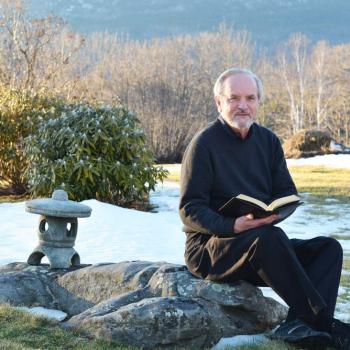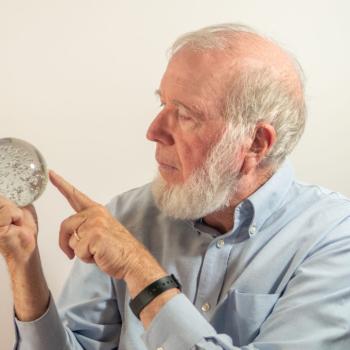Can emptiness really be fulfilling? It sounds like an oxymoron, doesn’t it? After all, aren’t we most happy when we are satiated, feeling stuffed after a big dinner, or when our calendars are full, and our lives are brimming with activities? Thomas Moore begs to differ.
In his book, The Eloquence of Silence: Surprising Wisdom in Tales of Emptiness, Moore looks at the merits of emptiness from a variety of perspectives. Through a series of short chapters, each beginning with an anecdote from both religious and non-spiritual texts, he speaks to how feeling empty opens us up to new possibilities and perspectives. His message: “You probably need to empty out as much as you fill up.”
While Moore is best known for his many books on the various aspects of the soul, in The Eloquence of Silence, he rarely mentions it by name. He doesn’t have to. His teachings reach somewhere deep within us, touching not so much the head, but the heart. And even mentioning the heart comes up short, because he is really shining a light into our souls, the deep, dark essence at the core of our being.
Moore’s calls to emptiness read like written meditations. Much like traditional meditation, his words put you in a different state of mind. The world around you may temporarily slip away as your focus turns inward. He is our tour guide, lighting the way along a darkened path until we reach a clearing, a vast emptiness that is not to be feared but to be embraced.
Do we really need emptiness?
Moore believes our modern lives are too jam-packed. Too filled with information and activities and material possessions. He opines that “perhaps we produce too many things and use too many words and even think too many thoughts.” And that poses a problem. Because when are lives are filled to the brim with stuff, we have no room for growth.
That’s why Moore advises us to “resist pressures to frantically fill every minute with activities or explanations or purpose.” When we begin to honor the emptiness inside us, we’re like the farmer clearing a field for new crops. We’re making room for growth and become “open and awake” to life. Moore asks us to consider:
How many aspects of our lives have run their course, yet we keep at them anyway? Some things are not significant like an old, frayed shirt in the closet or a pair of shoes with holes in them. Other things are significant: a rusting career or relationship. We keep them and don’t realize how they stop up the flow of life in general.
Moore urges us to “learn to appreciate emptiness and make it part of your daily experience. It can give you peace and comfort, especially when your life is full and active. It balances out any tendency to do too much or even to think and feel excessively.” It gives our souls room to breathe.
It may be time to reevaluate the things filling up your life.
Moore asks us to let go of things that are “no longer worth the effort” and that may not add the value and meaning to our lives that they once did. Consider your own life and you may come to realize:
The house you have been living in may no longer be appropriate and meaningful. The way you have been eating may not be healthy at this new time in your life. The way you spend your holidays and leisure time may be showing its limitations. You may have ideas and opinions that are getting old and frayed. It may be time to release them.
We also need to ease up on our constant search for new experiences. Quite often our lives are already filled with people and things that can awe and inspire us. We just need to step back and look at all the good that’s around us with fresh eyes. This involves seeing them as if for the first time, using our “beginner’s mind.” Moore advises us to:
- Try to forget what you think you know
- Simply be in the presence of whatever it is you are concerned with
- Aim for “total comprehension” and not just acquaintance
Emptiness could result in a better you.
How can you achieve a state of emptiness in your own life? As a start, Moore tells us that “emptiness might mean clearing your desk and cleaning your house, getting rid of clutter and developing a clean sense of beauty.” It may also mean eliminating any unnecessary activities or goals from your life or moving on from anyone filling your head with misguided opinions or negative ideas.
The result may be, in Moore’s words, that “when people meet you, they see the emptiness in your relaxed manner and in your absence of anxiety. You may look healthier and more approachable. You have empty spaces in you where people can enter. They won’t feel as though they are disturbing you or interrupting your perpetual anxiety.” Moore continues:
If you have empty oases in you, places for refreshment and pause, you can more likely enjoy a happy life. If you see a stunning mountain or lake as you travel, you can stop and take time to do nothing and look. If you see a child in need of attention, you can let go of what you are doing and be of assistance. If you need to just sit in a chair, you won’t be tempted by a habit of hyperactivity to avoid the welcome rest.
Additionally, when new people enter your life, you can warmly receive them, giving them the attention they deserve. When a new idea appears in your head, you’ll have the room to entertain it. When a new opportunity arrives, you can better examine it and, if merited, pursue it. As Moore suggests, “be empty so life can happen.”














